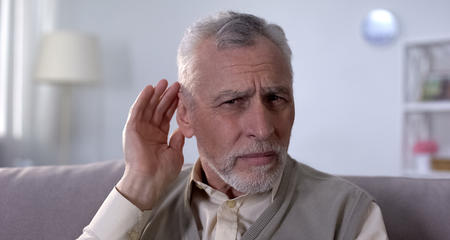About 40% of people with tinnitus also experience hyperacusis, or sound sensitivity. It can accompany hearing loss and/or tinnitus, or it can occur on its own. Sound sensitivity can present in different ways for different people but it generally means that you are sensitive or aversive to sounds others are able to tolerate. Sometimes, people are sensitive to normal sounds because they can cause tinnitus symptoms to increase, which is called reactive tinnitus.
What Is Hyperacusis
Hyperacusis is a disorder characterized by reduced tolerance to everyday sounds. It can lead to ear pain, emotional distress, avoidance and reduced quality of life. Hyperacusis encompasses a range of reactions to sound, which can be grouped into these subgroups: Loudness, annoyance, disgust, fear and pain. It is important to appreciate and quantify these different subgroups. Hyperacusis often begins as loudness sensitivity. It is easy to understand how this can develop into annoyance and fear hyperacusis. It is not uncommon to also see pain hyperacusis, which is sensation of pain in response to everyday sounds which are below the normal pain tolerance for humans. Reasonable approaches to assessing different forms of hyperacusis are emerging, including psychoacoustical measures, questionnaires and brain imaging.
What Causes Hyperacusis
Each year researchers add to a growing body of knowledge about the mechanisms and causes of hyperacusis. Sound sensitivities can have contributors from the middle ear, inner ear and the brain (central auditory system). Acoustic trauma (exposure to very loud sound) can lead to the development of hyperacusis. Certain disorders are associated with sound sensitivities such as Lyme disease, William’s syndrome and Addison’s disease to name a few. Hyperacusis can also develop in the absence of a definite cause and is not always associated with hearing loss or ear damage.
Central auditory system hyperactivity is thought to contribute in most cases of tinnitus, loudness hyperacusis and even ear pain symptoms. Many researchers agree pain sensations are triggered as a result of dysfunction in the central auditory system. This is also known as neural pain, meaning it is being generated in the brain, rather than due to actual structural damage to the ear itself. Neural pain can be more difficult to treat, as traditional pain relief strategies may not work.
Hyperacusis Symptoms
Symptoms such as aural fullness (ear pressure), muffled hearing, tympanic flutter (fluttery sensation on the eardrum) and some types of ear pain are common for those who develop hyperacusis. Just as too much weight on a bad ankle can cause re-injury, sound exposure can cause setbacks that feel damaging. Lingering pain and reduced pain thresholds can take days, weeks or longer to recover.
Hyperacusis Treatment
Hyperacusis can make life difficult, forcing sufferers to dramatically alter their work and social habits.
As setbacks can increase a person’s sensitivities, it is important to be diligent about sound exposure. It is not wise to stay away from sound exposure altogether through avoidance and, especially, overuse of hearing protection, as these techniques will actually cause sound sensitivity to increase. Long periods of underuse deprive our brain of inputs and cause us to be overly sensitive when exposure does occur. Think of how sensitive your eyes become to light after leaving a dark movie theatre after two hours. If two hours of dim light increases sensitivity, imagine what two weeks or two months would do. The same is true for our ears.
A delicate balance of sound exposure is needed with hyperacusis. People with hyperacusis should generally avoid sound exposure that causes distress, discomfort or negative emotional response. At the same time, they should also try to encourage desensitization in the central auditory system with cautious sound exposure to pleasant, tolerable and acceptable sounds they can control.
Cautious exposure includes judicious use of hearing protection in the form of earplugs, earmuffs, noise cancelling headphones and other devices which may plug the ear to some degree. We also encourage daily use of sound exposure through earbuds/headphones, ear level sound generators and other devices. The key is that the sound exposure is 100% in the control of the person with hyperacusis; they choose the sounds, how loud they are, how they listen to the sounds and how often. Often these strategies are paired together. A person may use earbuds which block the ears while presenting soft and soothing sounds to their ears.
What is ultimately at the heart of sound sensitivity is the brain’s misinterpretation that sounds are damaging and unsafe. Make sure all sound exposure stays in a range that feels safe. This can vary significantly depending on the severity of the hyperacusis.
Over time, with careful balance of protection and sound therapy, sound tolerance can begin to normalize, and people with sound sensitivity can once more enjoy the full range of sounds life presents.
Hope for Sound Sensitivity Patients
Living with sound sensitivity issues can be extremely upsetting and even life-altering. Our goal is to approach each person as an individual. We want to understand your specific physical, psychological and emotional needs and get you on the path to healing.
The audiologists who work each day with people struggling and suffering with these conditions do so because they have a passion to help others restore and improve their lives. Our program provides relief, improvement of quality of life and hope. Even when a cure is not possible, healing is always possible. Hope is very much alive.
Are You in Crisis?
If you're considering suicide, or have thoughts of suicidal ideation, call a suicide hotline or go to the nearest emergency room for immediate help. The National Suicide Prevention Lifeline is available 24/7.
- 1-800-273-8255
- Crisis Text line: Text HOME to 741741
Resources
Handouts
Our Tinnitus Videos
Websites
- Joey Remenyi Seeking Balance
- Bruce Hubbard (Cognitive behavioral therapy)
How to Make an Appointment
Because everyone’s sound sensitivity is different, it is essential that we gather information about the specifics of the conditions you are dealing with to ensure we schedule you for the correct assessments and with the appropriate providers. After we receive your completed forms, we will review them and contact you to schedule an appointment. Typically, you may expect a call within a week of the date the completed forms are received.
To schedule a sound sensitivity appointment, start by completing the following. Return them to us, along with any medical records related to hearing treatment — including past hearing tests or relevant office notes.
- New patient form
- Case history form
- Billing agreement
- Hyperacusis questionnaire
- Holmes-Rahe Stress Inventory
Return Forms
- Fax: 414-269-8157
- E-mail: [email protected]
- U.S. mail: Froedtert Hospital Audiology, 9200 W. Wisconsin Ave., Milwaukee, WI 53226
More Information
For more information about services, doctors or clinicians with the Tinnitus and Hyperacusis Program, please call 414-805-8569, or email us at [email protected].
Hyperacusis Specialists
Our team is made up of audiologists who specialize in evaluating and managing sound sensitivity. We have been helping people since 2008. Our audiologists have extensive training and many years of experience with people who experience a mild to severe disturbance from hyperacusis. They continually develop their skills and remain current on the most evidence-based practices.
Marcia Dewey, AuD, CCC-A
Kayla Sanders, AuD, CCC-A
Ann Smith, AuD, CCC-A
Kasey Gillmore, AuD, CCC-A
This team collaborates with others who treat disorders that can contribute to hyperacusis or make it worse. These specialists include:
- Ear, nose and throat specialists (otolaryngologists) who treat disorders of the ear
- Sound sensitivity counselors who provide cognitive behavior therapy (CBT) and stress relief
- Dentists who treat temporomandibular joint disorders (TMJD)
- Physical therapists who help people improve neck and jaw issues
Our audiologists provide education, management techniques and tools to gain control and relief of symptoms and the strong reactions associated with hyperacusis.
Virtual Visits Are Available
Safe and convenient virtual visits by video let you get the care you need via a mobile device, tablet or computer wherever you are. We'll assess your condition and develop a treatment plan right away. To schedule a virtual visit, call 414-777-7700.

